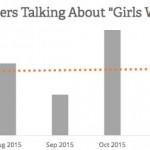How Learning To Code Helped Me Beat The Odds As A 19-Year-Old Female Founder
When I founded my business at 19, I knew a little HTML but could hardly call myself a coder. Over the course of the last 14 years in business, I’ve taught myself web development and IT management–because I had to. Learning to code was the only way for me to grow a business from scratch and beat the long odds as a female tech founder. Here’s how I did it.
Zero Overhead
When I first started my company, I hadn’t gone to university and I didn’t have a job. I was living at home with my parents, so while I had no real risk or expenses, I also didn’t have any business acumen or money to invest.
I’m pretty sure he never thought it would work, but as my dad had always wanted to start a business himself, he offered me £500 (around $600 USD at the time) to try it myself. That was actually a pretty good budget for launching a website back then, especially considering that nowadays it costs anywhere between £2,500 and £6,500 ($3,000–$8,000) to hire a developer to produce a small app and up to as much as £200,000 ($250,000) for more complex web products. Needless to say, not many would-be entrepreneurs have the kind of capital to pay for such services. And if they can’t code, they face a massive barrier to becoming a startup founder from the get-go.
In my first year, I turned that £500 into £19,000, which was a little over my dad’s annual salary at the time. I did it simply by taking an “early and often” approach–getting my product live within weeks of deciding what I would do, and worrying about how to run the actual business once I was actually running one. Coding–like business, it turns out–is all about learning by doing.
Early And Often
“Release early, release often” is a mantra in software development that allows startups to get new products and features out to their users as quickly as possible. As a coder, I quickly learned that I could implement new ideas in the time it would take to write up a project specification, and on top of that, it wouldn’t cost me anything. I still love how “learning to code” is the same as learning to code something–there’s always an end result. It just happens as you have ideas to implement or problems to solve, and all you need is a little base knowledge, Google, and a logical mind!
And when you’re working on your own projects, like I do, you’ll often find yourself working on things for the first time, which is exactly how I’ve managed to self-teach as I work. In other words, developers’ “early and often” mind-set is actually a useful learning strategy, not just an approach to developing. It’s what let me grow right alongside my business.
The same can be said of keeping abreast of changes in a fast-paced industry like technology. I was recently reading about the pros and cons of implementing Google AMP (“accelerated mobile pages”), for instance, with one article claiming the time and cost investment of implementing them in an existing CMS as one main drawback.
But as a coder, I was able to incorporate AMP into our custom CMS in about two weeks–all while juggling other tasks–and it cost me £0. Which means that if AMP doesn’t work out in the long run (or, more likely, if it’s changed) having implemented it is no big deal. And if it does stick around, then great–we’ve stayed abreast of those changes and kept up in minimal time.
Build It Yourself
I’ve found that being able to code hasn’t just helped me avoid wasting time and money, it’s also helped me innovate. One of the main ways I’ve been able to stay reasonably competitive as a small company is because we’ve built a comprehensive suite of administration tools, effectively automating large chunks of the business that would otherwise require a team of people.
Knowing what’s possible has made my business more efficient and shaved time off almost all the day-to-day tasks we encounter. Even simple things that improve the general management of the company can be done on a level that’s custom-made just for your business.
Independence And Empowerment
Though seeking investment in my budding company likely would’ve made me more successful more quickly, being a sole owner gives me a lot of independence and freedom.
But for me, that wouldn’t have meant as much without knowing how to code. Otherwise, I wouldn’t have had much choice over whether to seek funding to develop an app or website. Plus, women tech founders are less likely to get funded if they can’t code and struggle to attract investors overall. By one estimate, male entrepreneurs are 86% more likely to win financial backing than women founders. As I see it, learning to code is a relatively straightforward way of beating such terrible odds and winning yourself more independence in the process.
I’m proud that after founding my company before turning 20, it’s still making money 14 years later. I have no company debts or investors or shareholders or even a business partner to quarrel with. I did it all myself. And I did it because I taught myself how, learning the skills necessary for running a web-based business more or less on the fly. And coding was the foundation for all of that.
In my experience, people are generally a lot more capable than they believe themselves to be. Being able to code has allowed me to achieve my potential in a way I doubt I ever would have by working for someone else. That can be really empowering as a business owner, but its social and political advantages ripple outward, too.
Lyndsey Burton is a self-made business owner, coder, and designer, and the director and founder of Choose.co.uk, a UK-based consumer information site.
Fast Company , Read Full Story
(36)













